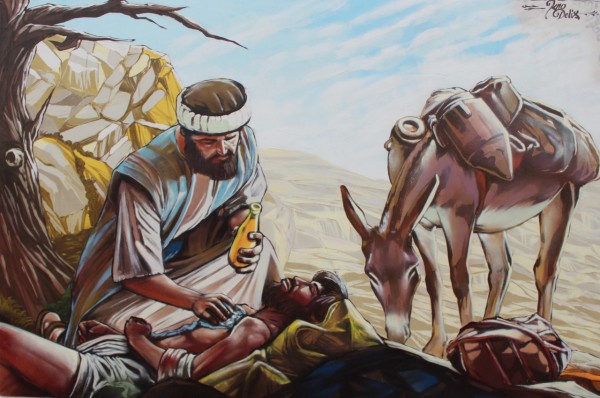
In the priceless parable of the good Samaritan (Lk 10:25-37) we discover two conflicting urgencies. Indeed, the encounter with the wounded man on the side of the road confronts each of the three characters who go down from Jerusalem to Jericho with a dilemma: what is more important? My urgency to reach my destination as soon as possible, or the one of the stranger who bleeds to death before my eyes? The first two men, the priest and the Levite, decide —quite cynically— that their urgency is, so to speak, more urgent than that of wounded man. The Samaritan understands that no matter how rushed he is, or how important it is for him to get where he is going and do what he had planned, now the urgency of caring for the person he has met is a priority.
We also live our lives under the pressure of a thousand and one urgencies: we must finish this or that personal or professional project, we have to arrive on time for a meeting, or finish some accounts, or schedule a weekend outing, or do the shopping, or answer several emails that accumulate in our tray, or to return messages and phone calls...
And we too, like the three characters in the story, suddenly encounter badly injured people fallen in the ditches of our itineraries: brothers and sisters who are going through a personal crisis, who are sick, people hit by poverty and injustice, by anguish or depression, those who feel abandoned.
And then we must ask ourselves what is more urgent: to accomplish what we were planning to do with our day—or to try to do whatever we can to alleviate the pain of those we have encountered.
Often, an honest and compassionate look at the suffering of others puts our urgencies into perspective, showing us their exact measure. It is not that we suddenly discover that they were insignificant or imaginary. What we discover, in the face of other people’s misfortune, is they can wait. Maybe they were not that serious.
The Good Samaritan, with his ability to change his plans and pay immediate attention to the wounded man, shows us the path of mental flexibility, which is a condition for and prelude to mercy. In other words: with his decision to postpone his objectives to assist the stranger, the Samaritan teaches us that rigidity and inflexibility are often an impediment for charity and tenderness to flourish in the world. Other people’s crisis cannot be programmed: they arise unexpectedly, when we least expect them, like a man beaten on the side of our road. We will only be able to properly respond to these crisis if we are willing to postpone, over and over again, our emergencies.









